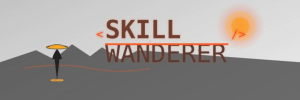Welcome to our first exploration into the history of computer science!
Long before the silicon chips and glowing screens we know today, the word "computer" referred not to a machine, but to a person—a professional whose entire job was to perform complex calculations by hand. How did we make the leap from brains and abacuses to the automated machines that power our world?
This video, "Early Computing" from the Crash Course Computer Science series, begins that story. It will take you on a journey through the mechanical age, revealing the ingenious minds and pioneering inventions that laid the foundational groundwork for the digital revolution.
As you watch, pay close attention to:
- The evolution of the term "computer" itself.
- The key mechanical inventions that served as the forerunners to modern computers, like the Step Reckoner and the Analytical Engine.
- The visionary contributions of pioneers such as Charles Babbage, Ada Lovelace, and Herman Hollerith.
- The real-world problems, from navigating seas to processing a national census, that drove these incredible innovations.
Please watch the video below to begin our journey into the history of computing.
